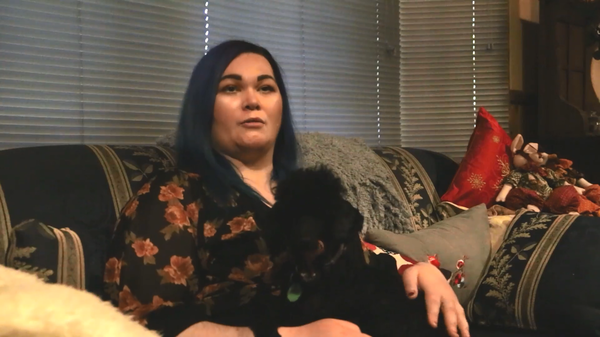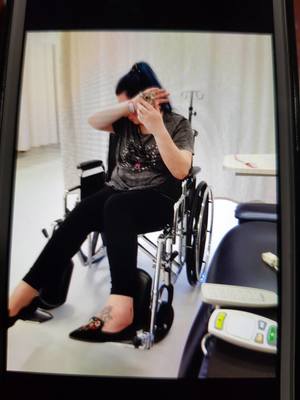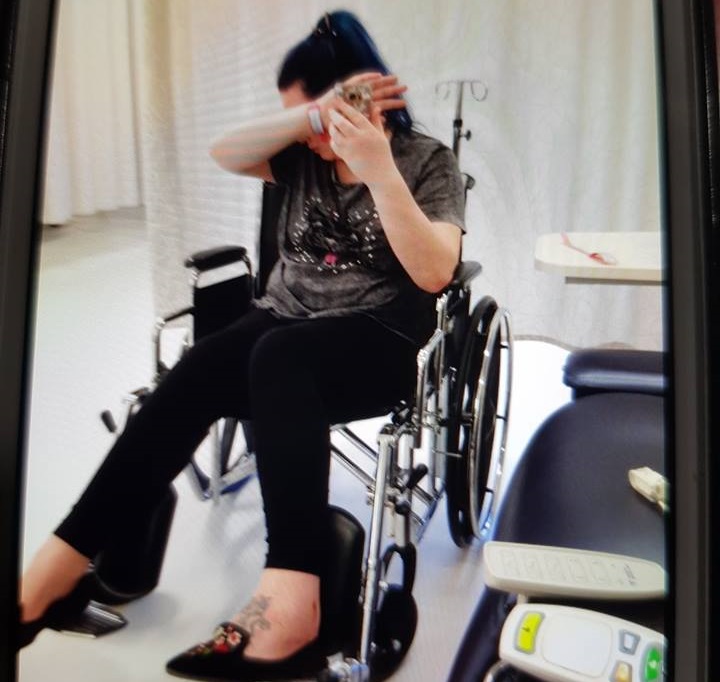
Teesdale crash victim Krystle McGrane has accused Centrelink of leaving her out in the cold by refusing her disability payments.
“All I want from them is the payment I believe I’m entitled to,” she told the Indy.
Ms McGrane has complex regional pain syndrome (CRPS), which occurred as a result of severe spinal injuries she sustained in two crashes.
The former dental nurse was driving to work on Midland Hwy on 6 October, 2014, when a car stopped suddenly in front of her.
Ms McGrane clipped the car, and did a 180-degree turn, before another car hit her head-on.
She suffered a badly broken sternum and severe injuries to her neck, back, bladder and knee.
“The policeman who came to the scene said he had never seen someone live through an accident that bad, given the way my car was belted up.”
Ms McGrane underwent several surgeries and Epworth Geelong pain specialist Dr Michael Vagg diagnosed her with CRPS, which rates higher than childbirth and amputation on the McGill Pain Index.
TAC payed Ms McGrane loss of earnings benefits, which the authority ceased after three years because she had “less than 50 per cent disability”.
In a letter to Ms McGrane on 20 June, 2017, TAC advised her to apply to Centrelink.
She applied before the payments stopped but Centrelink lost half of her paperwork, according to her.
Then, in late 2017, a car rear-ended her father’s car at Werribee while she was a passenger.
“I feels like you leave your body almost,” she said.
“Your bones and muscles separate and then snap back together like elastic. I’ll never forget that smell (of) burning rubber and metal.”
Ms McGrane finally began receiving Newstart Allowance in January 2018 but Centrelink refused to put her on a disability pension, she said.
“Even though they can access all my files from the doctor. Even though I’ve had spinal surgery and chronic pain.
“They said I should have completed 18 months of looking for job but I’ve been on TAC payments and unable to work.”
A Centrelink physio assessed her but had not heard of CRPS, Ms McGrane said.
“How can she even rate you when she doesn’t know what it is?” she said.
She could not receive further loss of work benefits from TAC because her debilitating condition stopped her from working at the time of the second accident.
Department of Human Services general manager Hank Jongen said allied professionals, employed by the department, carefully assessed medical evidence against legislated eligibility criteria.
“The Department of Human Services recognises medical conditions can have a significant impact on people’s lives, however, we do not have any discretion to grant payment outside the very clear criteria set down in legislation,” he said.
“People who claim Disability Support Pension need to provide all relevant medical evidence about their condition. This ensures we are able to comprehensively assess the medical eligibility for the payment.”
Mr Jongen declined to comment on Ms McGrane’s individual case.








